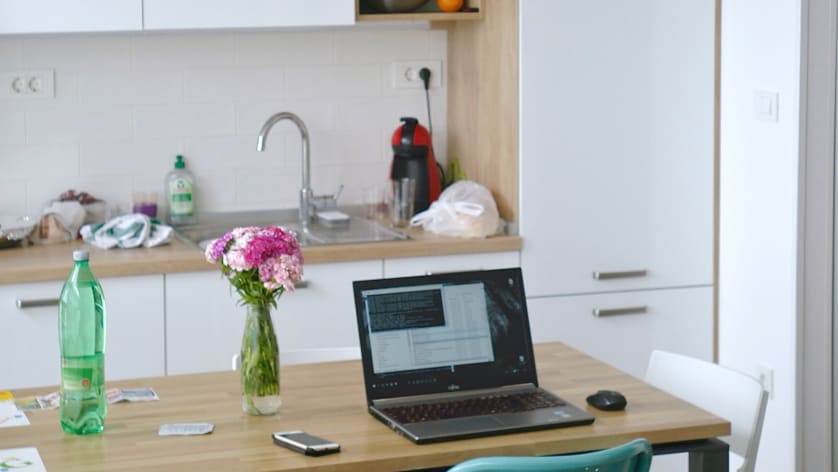What We Learned from Covid for Remote Work!

Because of COVID-19, many of us were in the position of having to work full-time remotely for the first time. As someone who thrives on human interaction in an office environment, having to work alone at home is challenging to say the least.
The first few home office weeks in particular were definitely the most difficult, as any transition always takes time. Here are some tips and tricks that can possibly make the transition and working from home alone more bearable:
Create the right environment:
For many people, setting up a work environment is as simple as organizing your desk. Now we're all at home - we may not all afford ourselves the same comforts and luxuries as we do in the office. It may be more comfortable for us to work from the sofa or bed - but it's not really conducive to getting work done.
- Dressing to go to work: Is it comfortable to be in pajamas? Yes! Does it help you get productive? Not really. Dressing normally every day like you would for the office helps put yourself in the mindset of being productive.
- Create a workspace: whether it's a dining room or a desk, having an area that can be called a "workspace" is key. What do you have in an office? How can you replicate it? Is that space being used for something else?
- Separating work from home: yes, you read that right. Separating "work" from "home" is difficult when home is now your office. Make sure you have a clear schedule of when you work and when you're comfortable. This will certainly keep you from feeling like you're working all the time. However, also give yourself breaks and don't lock yourself in a room. Even in the office, small coffee breaks are allowed and so there is nothing against taking them at home.
- Avoid temptations: For most people, their home is their space where they can focus on themselves and the things they like to do. It can be helpful to set up a space that is separate from where you spend your free time.
Timing and creating a schedule:
Often people work at different times for different reasons - having a plan for when who is available can be very important. Also, the separation between work and leisure time, which was mentioned earlier, can be facilitated by having a concrete schedule.
- Physical activity: Physical activity can be a good balance to the often cramped situation at home. You don't have to do a full workout, but exercise has been shown to improve mood and therefore performance.
- When to start and finish work: It's easy to lose track of time and keep working when it should be quitting time. Instead of working through the day sporadically, a set start and end time for work is recommended for work-life balance.
- Create a daily goal: Set a goal for yourself that you want to achieve in a day or week. A concrete goal can significantly increase motivation and also trigger feelings of happiness when that goal is achieved.
- Timing Breaks: Working with distractions can be difficult, whether it's kids, checking email, or visiting social media. Such things should only come into focus during defined breaks. A good way to take breaks and achieve goals is to reward yourself with a 5-minute break after 25 minutes of intense concentration.
Stay in touch
What do you usually do with colleagues? Virtual Zoom meetings, Google Hangouts, Slack and Facetime are great ways to feel connected with others.
- Schedule work meetings: One way to have a team exchange even during this difficult time is to have morning meetings to talk about goals and challenges that have come up. If you are having difficulties, a colleague may be able to help with tips. Also, knowing how your colleagues are feeling and seeing that you are not alone can often do wonders.
While this is not the end all be all of work from home tips, it is at least a little initial food for thought that everyone needs to follow up on for themselves.
















